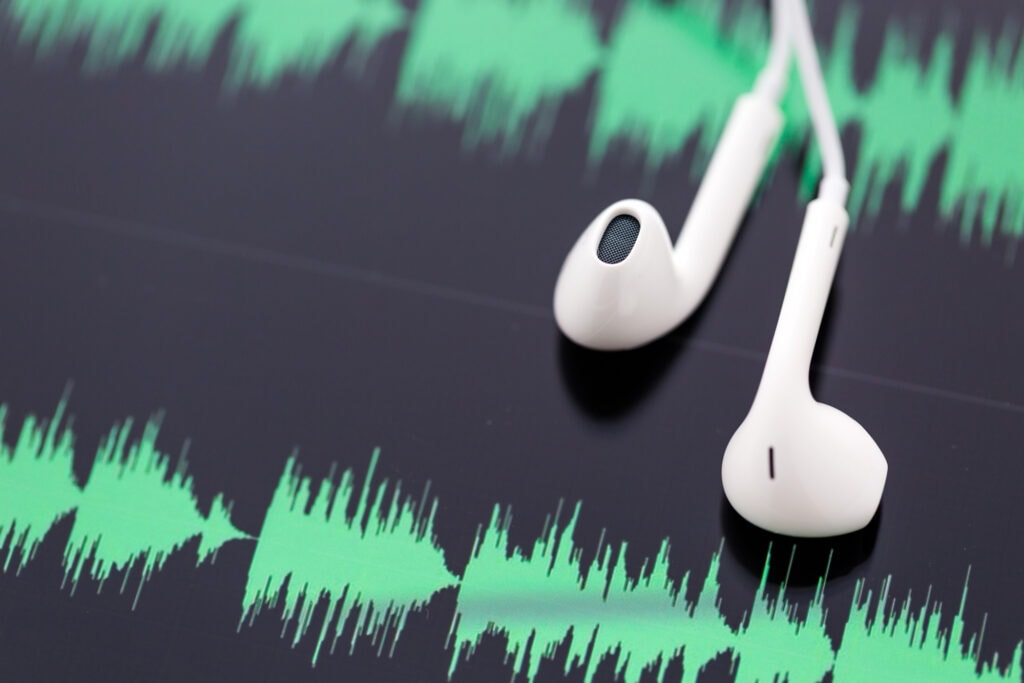In an increasingly digital world, the demand for transcription services has surged. More than ever before, businesses, researchers, and individuals alike are seeking skilled transcriptionists who can accurately convert audio files into written text.
And the best part? This job can be done from the comfort of your home, enabling you to discover how to make money doing transcription.
Whether you're seeking a full-time career or a side hustle, becoming a transcriptionist might be the perfect fit. It offers flexibility, the potential for a solid income, and the chance to enhance your listening and typing skills.
But how do you get started? What does the job entail and what platforms can you use to make money transcribing?
This comprehensive guide will answer all these questions and more. It's designed for those exploring the world of transcription for the first time, as well as seasoned professionals seeking new opportunities. With the right information, resources, and mentorship, you can make a successful career as a transcriptionist.
So, let’s get right into it and learn some new ways to make money!
Plus, find out how we can coach you to grow your net worth absolutely FREE.
What is Transcription and How Does it Work?
At its core, transcription is the process of converting spoken language into written text. This practice is crucial across a variety of fields, including legal, medical, media, and research sectors. From courtroom proceedings to podcast episodes, transcriptions provide accessible, readable records of audio and video content.
But how does it work?
- Receiving the Audio File: The transcription process begins with an audio or video file. This could be a recorded meeting, a lecture, a court proceeding, or any other type of spoken content.
- Listening and Transcribing: The transcriptionist listens to the file and types out the content verbatim. This requires an acute attention to detail, as capturing every word correctly is critical for accurate transcripts.
- Editing and Proofreading: Once the initial transcription is complete, the transcriptionist reviews the text for errors. They may listen to the audio file again to ensure the transcription is accurate and makes sense in context.
- Formatting: Depending on the client's needs, transcriptionists may format the text in a specific way, such as including timestamps or speaker identification.
- Submission: Once the transcript is accurate and formatted correctly, it's sent to the client for their use.

Becoming a transcriptionist requires not only a sharp ear and fast typing skills, but also a deep understanding of this process. The more efficient and accurate you are, the more opportunities you'll have to make money doing transcription.
What Are The Different Ways You Can Make Money Through Transcription?
Let’s check out the different ways through which you can make good money with your transcription skills:
Become A Freelance Transcriptionist
Freelancing is a prevalent path in transcription. As a freelancer, you work independently, taking on diverse projects as per your schedule. This path offers you the freedom to select your projects and work hours, making it ideal for those seeking flexibility.
How does one become a freelance transcriptionist? You have options. You can either approach potential clients directly, pitching your services to businesses, educational institutions, or legal entities, or use freelancing platforms. Websites like Upwork, Fiverr, and Freelancer are hubs for transcription jobs spanning various sectors.
Success in freelancing hinges on a robust portfolio and a trail of positive reviews. Your experience and good client feedback can secure higher-paying jobs. While it may take time to build your reputation, the benefits, both financial and personal, are worth the effort.
Work For A Transcription Company
Taking a turn from the solitary road of freelancing, another lucrative avenue for aspiring transcriptionists is joining the ranks of a transcription company. Why? Because these companies are hotbeds for transcription work. They deal with a vast array of clients, making them a treasure trove of consistent transcription assignments.

Imagine this - you're not an employee but an independent contractor when you work for a transcription company. What's the upside? You still have the reins of your schedule, but with a bonus - a steady flow of work and potentially, a predictable paycheck.
Now, don't be too quick to jump in. There's a rite of passage. Transcription companies usually require you to pass a test before you can dive into work. These tests are like a litmus test for your listening skills, typing speed, and language prowess. Clear this hurdle, and you're ready to tackle assignments.
Think Rev, TranscribeMe, GoTranscript. These are household names in the transcription world, catering to sectors as diverse as academia and entertainment. Working with such companies can give your career a kickstart, especially if you're just getting your feet wet in the industry.
Transcribe Audio Files For Clients
If you're looking for a transcription opportunity with a twist, why not consider direct client engagement? That's right, you can transcribe audio files for clients who need their audio or video content converted into text. This could include podcasts, YouTube videos, webinars, interviews, or even personal recordings.
The real charm of this option is the potential for direct client relationships. Say goodbye to middlemen and hello to working directly with clients who value your service. It's a chance to understand their needs better, deliver personalized service, and even negotiate your rates.
However, it's not all roses. Finding clients can take time and effort. You might need to scour social media, join relevant forums, or network at industry events to land potential clients. And let's not forget the importance of having a solid portfolio to showcase your skills.
But here's the silver lining - once you secure a client and impress them with your exceptional service, you might just find yourself with repeat work or even referrals. The key is to be patient, persistent, and dedicated to delivering quality transcriptions.
Transcribe Medical Records
Have you ever considered the vital role transcription plays in the healthcare field? Welcome to the world of medical transcription, a niche that holds tremendous potential for those with a flair for medical terminology and a keen ear.

As a medical transcriptionist, your task is to transcribe medical records. These could be physician's notes, medical reports, summaries of hospital stays, or even audio recordings of medical procedures.
Medical transcription offers a chance to merge the medical and transcription worlds, providing a unique service that's in high demand. Doctors, hospitals, and clinics worldwide rely heavily on accurate medical records, and that's where you come in.
However, this isn't a realm for the faint-hearted or uninitiated. Medical transcription often requires specialized training due to the complexity of medical jargon and the necessity for absolute accuracy. After all, a single error in a medical record can have significant implications.
But fear not! The investment in training can pay dividends. Medical transcriptionists often command higher rates due to their specialized skills, making this a lucrative niche for those willing to master the medical lexicon
Transcribe Audio Recordings For Businesses
In the corporate world, time is money, and clear communication is king. This is where transcribing audio recordings for businesses comes into play, offering a golden opportunity for transcriptionists to leave their mark.
Businesses, large and small, often need transcriptions of meetings, conference calls, interviews, webinars, or training sessions. These written records are crucial for maintaining accurate records, improving accessibility, and ensuring all team members are on the same page.
As a business transcriptionist, you'll be the silent partner to businesses, turning their spoken words into readable, searchable text. It's a job that requires precision, discretion, and often, a quick turnaround time.

However, the rewards can be substantial. Businesses are usually willing to pay well for reliable and accurate transcription services, recognizing the value these bring to their operations. Moreover, establishing a good relationship with a business client can lead to regular work and even referrals.
Work As A Transcription Editor
Transcription isn't just about typing out audio files; there's a whole other side to it that often goes unnoticed – editing. If you have a keen eye for detail and a knack for grammar and punctuation, working as a transcription editor could be your calling.
In this role, you'll be reviewing and editing transcriptions completed by other transcriptionists. It's a crucial step in the transcription process, ensuring that the final product is error-free and accurately represents the original audio.
As a transcription editor, you'll correct spelling and grammatical errors, ensure the proper use of industry jargon, and even fine-tune the formatting to meet client specifications. It's about more than just proofreading; you're the final quality check before the transcription reaches the client.
While it might not sound as glamorous as transcribing, it's a vital role, and skilled editors are in high demand. Plus, it's an opportunity to command higher rates than typical transcription work, as it requires a deeper understanding of language and a meticulous attention to detail.
Work As A Court Reporter
Ever wondered how spoken words in a courtroom become official written records? It’s all thanks to the work of court reporters. If you're interested in legal proceedings and have top-notch transcription skills, this might be your perfect niche.
Court reporters play a vital role in the justice system. They transcribe everything said in a courtroom during a trial, deposition, or other legal proceedings. Their transcripts ensure an accurate record of events, which can be crucial in legal decisions and appeals.

This role is about more than fast typing. It requires a solid understanding of legal terminology and proceedings, strict confidentiality, and exceptional accuracy. The stakes are high – a single error could affect a legal outcome.
Becoming a court reporter often requires specific training and certification, depending on your location. However, this investment can pay off. Court reporters can command high rates for their specialist skills and the importance of their work.
Transcribe Audio Files For Podcasts
In the world of content consumption, podcasts have carved a niche for themselves. But did you know there's a transcription opportunity waiting in the wings here? Yes, transcribing audio files for podcasts could be your ticket to joining this booming industry.
Podcasters often require transcripts of their episodes for several reasons. Transcripts make their content more accessible, help with SEO, and provide a reference point for listeners who may want to revisit specific parts of the episode.
As a podcast transcriptionist, you're an invisible but essential part of the podcasting process, transforming vibrant conversations and insightful interviews into written words. You'll need a good ear, fast typing skills, and an understanding of various accents and conversational speech.
The beauty of this niche lies in its diversity. Podcasts cover a plethora of topics, meaning you could be transcribing anything from a chat about movies one day to a deep dive into scientific research the next.
How Much Can You Make As A Transcriptionist?
So, how much can you really make as a transcriptionist? The answer, as with many professions, can vary greatly depending on several factors.
Firstly, your income as a transcriptionist can depend on your experience and skill level. Beginners may start at a lower rate, but as you gain experience and improve your skills, your earning potential can significantly increase.
Secondly, the type of transcription work you do can influence your earnings. General transcription work may pay less than more specialized fields like medical or legal transcription, where specialized knowledge and skills can command higher rates.

The pay structure also varies. Some transcriptionists are paid per audio minute, which means you're paid for the length of the audio file, not the time it takes you to transcribe it. Others may be paid an hourly rate or a flat fee per project.
On average, transcriptionists could earn anywhere from $6 to $25 per hour. However, highly experienced or specialized transcriptionists could make significantly more.
How To Become A Freelance Transcriptionist?
Navigating the transcription world can seem daunting at first, but don’t worry, we’ve got you covered. Here’s a step-by-step guide on how to kickstart your career as a freelance transcriptionist.
Step 1: Decide What Types Of Transcription Jobs You're Interested In
Do you want to transcribe medical records, court proceedings, or podcast episodes? Your interests and skills can help guide your decision. Research the different types of transcription jobs to find the ones that align with your skills and interests.
Step 2: Get Your Resume Prepared
Highlight your skills, experience, and any relevant qualifications in your resume. Be sure to mention your typing speed, familiarity with transcription software, and any specific areas of expertise.
Step 3: Take A Typing Test
Many transcription companies require a certain typing speed, often measured in words per minute (WPM). Free online typing tests can help you assess and improve your typing speed.
Step 4: Apply To Transcription Jobs
Look for job postings on transcription company websites, job boards, and freelance platforms. Tailor your application to each job, highlighting how your skills match the job requirements.

Step 5: Practice Your Typing Skills Or Pursue Advanced Training
Continuous practice can help improve your typing speed and accuracy. If you're considering specialized transcription, you may need additional training in medical or legal terminology.
Step 6: Take A Trial Account With The Company
Some companies offer trial accounts or require you to complete a test transcription. This is a great way to show off your skills and get a feel for the company's workflow.
Step 7: Understand The Company's Style Guidelines
Every company has its own style guidelines, which can include formatting preferences and how to handle unclear audio. Understanding these guidelines is crucial to delivering high-quality transcriptions.
Step 8: Use The Right Tech Instruments
Having the right equipment can boost your productivity. A good pair of headphones, a comfortable keyboard, and reliable transcription software are must-haves for any transcriptionist.
Step 9: Deal With Different Types Of Clients
As a freelancer, you'll work with a variety of clients. Learning how to communicate effectively, manage your time, and handle feedback is key to building strong client relationships.
Bonus Step 10 : Utilize Online Chat Platforms Correctly
Online chat platforms can also be a rich source of information and community. Joining transcriptionist groups or forums can provide you with valuable insights, practical advice, and a supportive network of peers who understand the challenges and rewards of transcription work.
Proper utilization of online chat platforms is more than just good etiquette; it can help you build strong relationships, grow your network, and even improve your transcription skills.

FAQ
What Is Transcription?
Transcription is the process of converting spoken language into written text. This could involve listening to an audio or video recording and accurately typing out what's being said. It's a crucial service in various fields, including healthcare, legal, business, and media.
Transcription can be categorized into three main types: general, medical, and legal. General transcription could include transcribing interviews, lectures, podcasts, etc. Medical transcription involves transcribing medical records from doctors' voice recordings, while legal transcription typically includes transcribing court proceedings, depositions, and other legal documents.
How Does A Transcriptionist Make Money?
Transcriptionists earn money by converting spoken language into written text, typically from audio or video recordings. They can work as freelancers, taking up projects from various clients found through online platforms or networking. Another common route is working for transcription services companies, which typically pay per audio or video minute transcribed.
Specialized transcriptionists, such as those in medical or legal fields, often earn more due to their specific expertise. Transcriptionists may also earn income by proofreading and editing transcripts or transcribing multimedia content like podcasts or videos. Earnings vary based on factors like typing speed, accuracy, the complexity of the tasks, and turnaround time. Resources like Capitalism.com can help transcriptionists maximize their earning potential.
What Qualifications Do I Need To Become A Transcriptionist?
Becoming a transcriptionist does not typically require specific formal qualifications, but there are several skills and attributes that can enhance your success in this field.
First, a high proficiency in the language you're transcribing is critical. This includes grammar, spelling, and punctuation. Second, strong typing skills, including speed and accuracy, are important. The ability to listen and transcribe simultaneously is also essential.

Familiarity with transcription software and equipment, such as foot pedals or specialized headphones, can be beneficial. For specialized fields like medical or legal transcription, knowledge of the respective terminologies is required.
What Transcription Companies Are Available?
There are several transcription companies that offer diverse opportunities for both budding and experienced transcriptionists. These companies span various industries, including general, legal, and medical transcription. Here are a few:
These are just a few examples. It's always important to do your research and find the company that fits best with your skills, interests, and career goals.
What Skills Do I Need To Be A Successful Transcriptionist?
Becoming a successful transcriptionist requires a specific set of skills. Strong listening abilities are paramount to accurately understanding and transcribing audio files, even those with heavy accents or poor audio quality. Coupled with this, fast and precise typing skills are crucial to transcribe content efficiently and accurately.
A deep understanding of the language, including grammar, spelling, and punctuation, is also critical. Attention to detail is another key skill, ensuring that transcriptions are as accurate and complete as possible. Lastly, good time management skills are essential, as transcription work often comes with strict deadlines. All these skills contribute to making a transcriptionist successful in their role.
What Is The Difference Between A Transcriptionist And A Transcriber?

In the context of transcription services, there is no significant difference between a transcriptionist and a transcriber. Both terms are often used interchangeably to describe a professional who converts spoken language into written text, typically from audio or video files.
However, the title used can sometimes depend on regional language preferences or company-specific terminology. Regardless of the title, the role and responsibilities remain the same, involving listening to audio files, understanding the content, and accurately typing out what is said in a readable format.
How Much Does A Transcriptionist Get Paid Per Audio Minute/Hour?
The pay rate for transcriptionists can vary significantly based on factors such as the complexity of the content, turnaround time, and the transcriptionist's experience and skill level. However, keep in mind that an hour of audio can take anywhere from 4 to 6 hours to transcribe, depending on the audio's quality and the speaker's clarity. Specialized transcription work, such as medical or legal transcription, typically pays higher rates due to the need for specific knowledge and skills.
Remember, these figures are averages and actual pay can vary. Many transcription services also offer opportunities for bonuses and increased pay for quick turnaround times or high-quality work.
What Is The Transcription Testing Process Like?
The transcription testing process typically involves transcribing a short piece of audio or video. The purpose of this test is to assess your transcription skills, including your typing speed, language proficiency, and ability to accurately convert spoken words into written text.
In most cases, you'll be provided with a brief overview of the company's style guide and transcription guidelines before taking the test. This guide may include details on how to format the transcription, how to handle inaudible or unclear speech, and how to transcribe different speakers.

Once you submit your test, it will be reviewed for accuracy, adherence to the style guide, and overall quality. Some companies may provide feedback on your test, while others may simply notify you if you've passed or failed.
Remember, each company's testing process can vary, so it's important to thoroughly read and understand any instructions given before beginning your transcription test.
What Types Of Audio Files Do Transcriptionists Work With?
Transcriptionists navigate a diverse landscape of audio files, each with its unique challenges and rewards. They delve into interviews, transforming insightful dialogues into accessible text. They transcribe lectures and speeches, converting spoken wisdom into written knowledge. Medical transcriptionists decipher complex jargon, providing accurate records of consultations and procedures.
In the legal realm, they capture the intricate dance of courtroom discourse. Business meetings and conferences also find their way onto the transcriptionist's desk, turning verbal exchanges into detailed records. Additionally, with the rise of digital media, transcriptionists are increasingly transcribing podcasts and videos, thereby enhancing the reach of these platforms. In essence, a transcriptionist's work is as varied as the audio files they encounter.
Takeaway
The journey to becoming a successful transcriptionist could be a fulfilling one, but it's not without its challenges. As we've explored, it requires a specific skill set, an understanding of various audio formats, and the ability to adapt to different transcription software. From freelance opportunities to specialized roles in medical and legal fields, there are numerous ways to make money in this profession.
As a service-based business, one benefit of doing transcription is that you can work from anywhere. That makes it a potential option for those who want to work from home. It might even be a great side hustle for you to get into while you’re working a full-time job or building a scalable physical products business.
If the idea of building a business of your own - one that you’ll be proud to own, that makes the world a better place, and that has the potential to change your financial life for the better… you’re in the right place.
Here at Capitalism.com, we’re on a mission to make one million new millionaires by 2028. We’d love YOU to be one of them!
That’s why we made this FREE course that will help you grow your net worth and make your first million dollars. Join us now and let’s get started!









